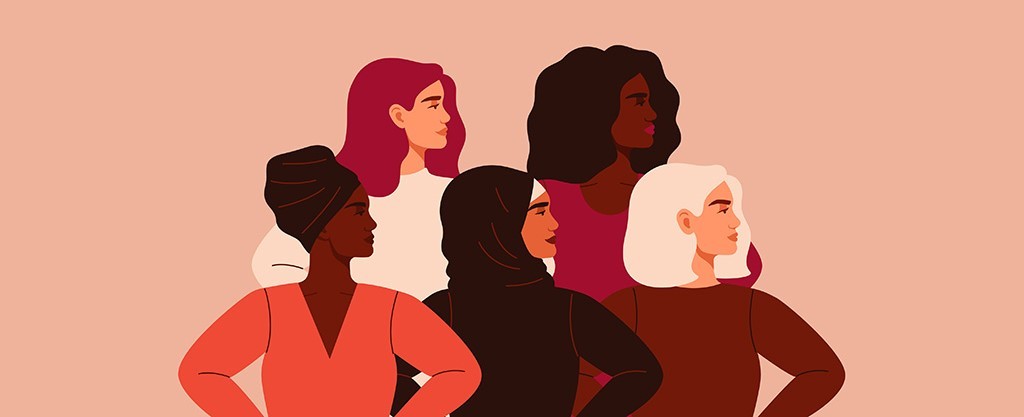
08 Mar Choose to challenge: social media protests, the new way forward for feminist activists?
March 8th is celebrated every year globally as International Women’s Day. It is a focal point in the movement for women’s rights and this year’s theme is “Choose to Challenge”. This theme aims to push individuals to call out gender biases and inequalities. At the Amsterdam Institute for Global Health and Development (AIGHD), we are committed to challenging gender inequalities, questioning stereotypes, and helping forge an inclusive world. In November 2020, Prof. Eileen Moyer published a paper together with Gavaza Maluleke on the use of digital activism to change and shape public discourses on gender equality. Eileen brought in her ethnographic expertise whilst Gavaza used her background in media studies for the analysis. Today we discuss their article and highlight how women “chose to challenge” through a series of feminist protests that took place within larger political mobilizations in South Africa.
Three online protests led by young South African feminists gained wide media attention in 2015 and 2016 —#RapeAtAzania, #RUReferencelist, and #RememberKhwezi. Since the end of Apartheid, South Africa has continued to be challenged by institutionalized silence around gendered violence in educational, legal, and political domains. The protests challenged this code of silence, which often protected the perpetrators of gendered and sexual violence while silencing the voices of victims. During the protests, young educated feminists relied on social media for organizational, informational, and activist purposes to speak out about anti-violence and feminist movements in South Africa. “In vocalizing their frustrations, they draw attention to how silence operates in South Africa: it is not that gendered violence is not discussed but that public discourse consistently shifts responsibility from the perpetrator to the survivor. Although sexual violence has long plagued South African society, young feminists today are engaging and identifying with this highly politicized issue on personal grounds. Via social media, these feminists reveal their own encounters with sexual violence, expose silences that accompany rape, and call for an unforgetting of the stories of rape survivors.”
This move towards digital protests may be a turning point for (feminist) activism in South Africa and has proven to be a powerful tool in calling for solidarity among African feminists. “These actions in South Africa are an outcome of more than 25 years of post-apartheid politics. Younger generations are sometimes critical of previous generations for not doing more for women’s rights, but it is also true that many younger women are encouraged and supported by older women who also advise them on political action. This article shows that history must always be considered when trying to make sense of contemporary political movements.”
Eileen talks about the common misconception that the Global South needs to follow in the footsteps of the Global North to develop or achieve progress. In actuality, there are different ways to succeed, and Eileen mentions that the Global South doesn’t necessarily need to follow the Global North to fight for equality. The movement in South Africa makes clear that there are plenty of models on the ground, locally. “The forms of digital action we followed happened in South Africa before the #MeToo movement gained ground in Europe and The United States. Gavaza presented our research about South African forms of digital feminism at the 2017 African Studies Association conference in the United States, which was held less than a month after the Harvey Weinstein story broke, which sparked #MeToo. The story we tell in the paper shows that there is a diversity of things that South African women are fighting for and that, especially for younger educated South African feminists, social media provides an important space for making their concerns visible and for holding institutions like the police and universities accountable.”
From challenge comes change
Eileen stresses that societal change can take a decade or more and impact is most likely not immediately visible. “When we talk about women’s rights or people’s rights in general, we are most often talking about democracy. It is messy and it takes time. A feminist movement like the one we see in South Africa is progressive and there will be setbacks, but one must persist just as these women do in South Africa.”
Social media is a powerful tool, but it is a “double-edged sword” with a dark side. What’s trending on Twitter becomes the story of the day in mainstream media, which can be problematic if it comes to replace quality investigative journalism, but in the case of these South African women, it provided the perfect platform to reach a wider public. Social media is increasingly becoming one of the main sources of news for many citizens. This democratizes journalism, providing a platform for many whose stories may not otherwise be heard, but there is always the risk of “fake news” or being cyber bullied when sharing personal stories about sexual harassment. Despite such challenges, women in South Africa have been able to communicate their stories and ensure their voices and their rights are taken seriously within broader political movements underway in the country.
Bringing an end to gendered inequality is an unfinished project everywhere in the world and it will be up to a younger generation of women to lead the way, to transform the feminist ambitions of their mothers’ generation to meet their own vision. Young feminists in South Africa continue the fight. Gavaza, who is currently teaching in the political science department of the University of Cape Town, continues lectures on this topic and holds seminars with politically engaged South African students. Eileen and Gavaza’s article demonstrates the transformative potential of social media for young women’s activism in South Africa. Ladies: choose to challenge!
